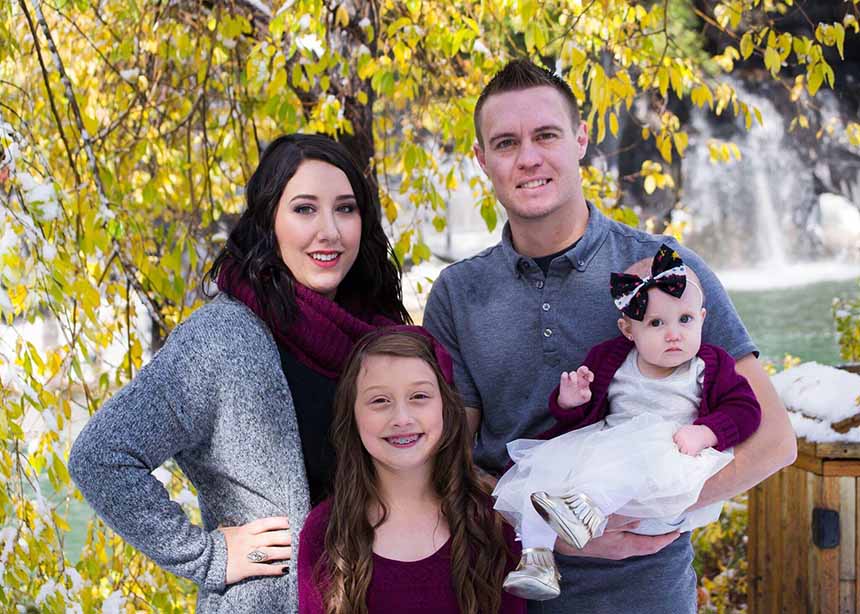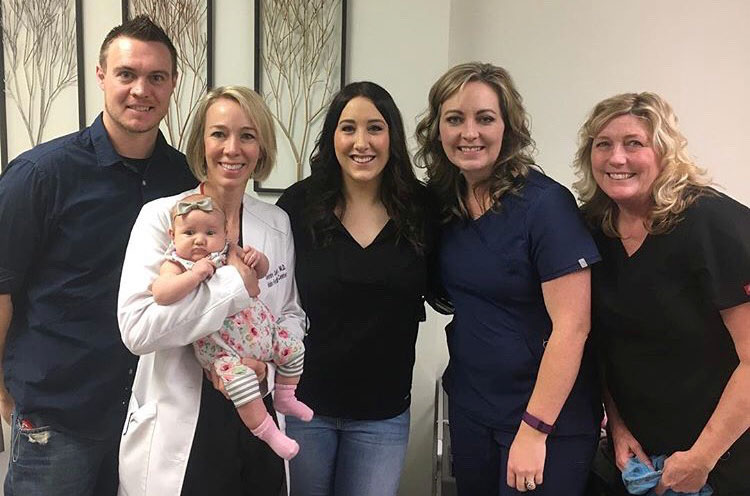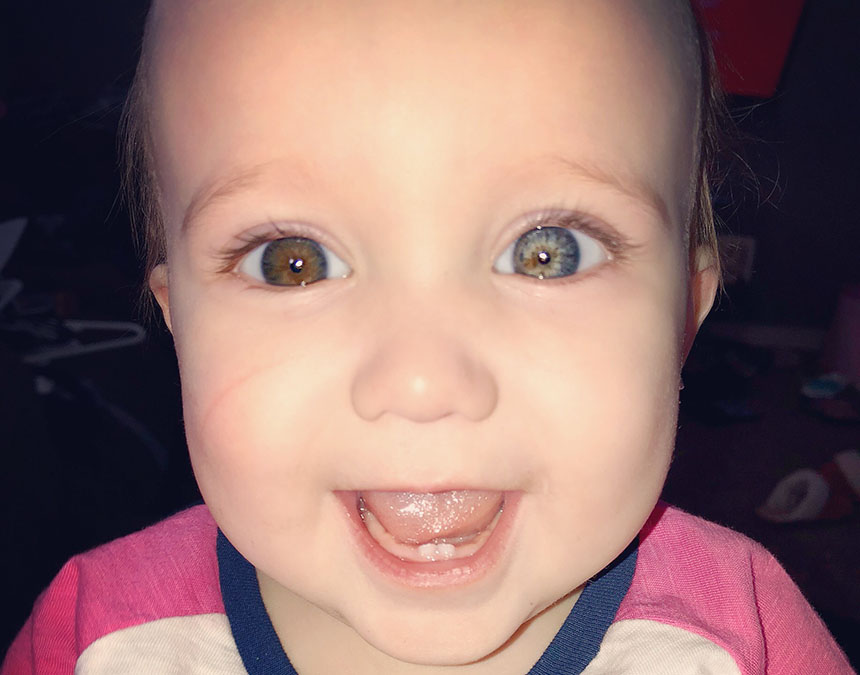There’s help for infertility in east Idaho
Published at | Updated at
Paula Pack understands heartache.
The 28-year-old Idaho Falls woman and her husband, Blaine, tried numerous times to get pregnant without success. The couple was part of a staggering statistic. More than five million Americans of childbearing age (one in 10 couples) have problems with infertility, according to Parents Magazine.
“I love my husband and wanted to have a child with him,” Pack said, adding that she does have a 9-year-old from a previous marriage. “I quickly realized we needed to figure out what was going on.”
Luckily, Pack became familiar with Dr. Deirdre Conway, a reproductive endocrinologist with the Idaho Fertility Center in Idaho Falls, after spending nearly a year on fertility drugs with no end in sight.
Up until roughly two years ago, couples in eastern Idaho had to travel to Boise or Utah for fertility treatment, Dr. Conway said, but that quickly changed when she realized eastern Idaho needed a closer option for fertility help. Conway has worked with Utah Fertility Center for the last five and a half years and was instrumental in spearheading a branch in Idaho Falls.

Utah Fertility Center has been in operation since 2010 and has four branches in the state, in addition to the location in Idaho Falls.
“It’s been really nice for the community to have access to help locally,” Conway said, “I wanted to help make that happen.”
Dr. Conway has seen dozens of couples since opening up shop in town. Pack’s situation isn’t uncommon, Dr. Conway said said she’s happy to help those struggling.
After undergoing in vitro fertilization (IVF) at the clinic, the Packs were able to get pregnant with a baby girl, who was born Jan. 30.
What’s even more amazing for Pack is how her embryos were able to undergo preimplantation genetic screening (PGS), which is a genetic test used to evaluate embryos and confirm that there is a normal number of chromosomes prior to placing it back into the uterus. This testing significantly reduces the chance of miscarriage.
At the time, Pack had to travel to one of their offices in Utah for the procedure, but Conway’s office will be able to offer the service locally beginning January 2018.
“It’s amazing what we are able to offer to our patients,” Dr. Conway said.
Conway says success with her office is very possible. One of their biggest hurdles is just educating people about what options are available and combating misinformation.
Here is a look at five myths surrounding infertility:
- You should try to conceive for at least a year before seeing a physician. FALSE. Scientifically speaking, infertility is defined as one year of unprotected sex without conception, according to https://www.rrc.com/resources/10-common-myths-about-infertility/. However, many couples should get a diagnostic evaluation and seek treatment prior to the year mark. This especially includes women over 35 with a history of irregular periods, fibroids, endometriosis, pelvic adhesive disease, ectopic pregnancy or recurrent miscarriage. “It’s never too early to seek help from a fertility specialist,” Dr. Conway said. She also advises couples not to spend an excessive amount of time undergoing treatment that isn’t working, but to seek other avenues with their doctor.
- Infertility treatment is expensive. FALSE. There is a wide range of treatments available, Conway said, adding that many of her patients are able to get pregnant without IVF. However, it is important to realize that treatment will depend on your history, diagnosis, and goals. “We want each couple to be able to have a baby,” Dr. Conway said. Conway’s office does provide financial consultations and discounts for a variety of treatments, including IVF.
- Infertility treatments puts you at a high risk for carrying multiples. FALSE. It’s important to assess each situation, Dr. Conway said, and she usually only transfers one embryo during IVF. The goal is to have a healthy pregnancy, Dr. Conway said, and most pregnancies from her office result in singletons. Dr. Conway’s office also offers genetic testing for IVF, which significantly reduces the chance of miscarriages.
- Age isn’t a factor for fertility until you hit 40. FALSE. Women are born with approximately 2 million eggs, but about 11,000 die every month prior to puberty. Once a woman hits puberty, she has only about 300,000 to 400,000 eggs remaining. However, roughly 1,000 eggs die each month after puberty. As a woman ages, her ovarian reserve slowly declines, and most notably after the age of 35, although it isn’t drastic. “The chance of conceiving with fertility treatment is highest in couples where the female partner is 35 years old or younger; however, many of our patients are over the age of 35 and are also having success,” Dr. Conway said.
- Men aren’t likely to be a contributing factor to infertility. FALSE. Nearly half of couples with infertility problems have some degree of a male factor contributing to the problem. There are multiple reasons for male infertility. Testosterone levels affect sexual function and sperm count. Low semen quality can also hinder pregnancy. It’s vital to make sure the male gets tested, Dr. Conway said.
“We want all of our patients to have the very highest chance of achieving pregnancy. I can’t imagine anything more rewarding than helping our patients build their families after many of them have been struggling for so long,” said Dr. Conway.
And words can’t convey Pack’s feelings for Dr. Conway.
Ten months after giving birth to her daughter, Pack still tears up thinking about her fertility journey.
In fact, she’s so passionate about her experience that she’s started her own infertility support group in Idaho called Idaho Infertility Support. The group is mirrored after a similar group in Utah. You can find the resource on Facebook at https://www.facebook.com/groups/512445499106128/
“I don’t think there are words when you’re struggling to have a baby,” Pack said. “People need support through it all and there aren’t any words to describe the gratitude I have for Dr. Conway and the team.”




